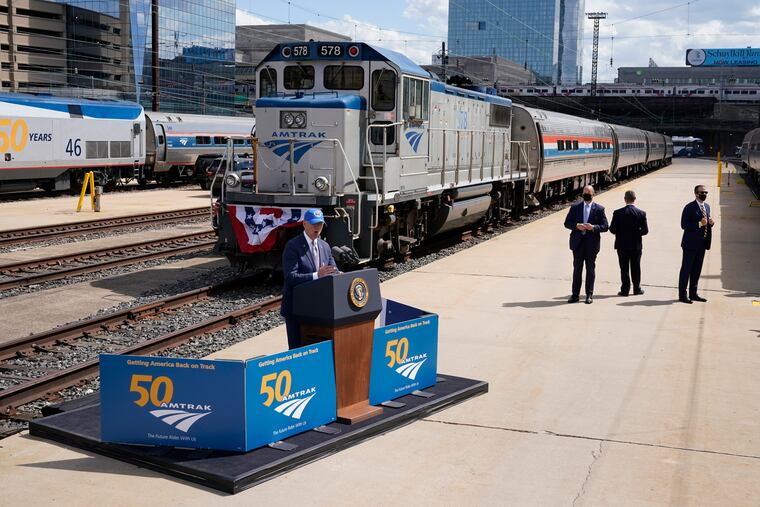Amtrak’s new 30th Street Station will increase asthma and other air quality issues
On-site gas-fired boilers are not the answer.

Amtrak’s William H. Gray III 30th Street Station in Philadelphia is getting a long-overdue makeover as part of a multibillion-dollar renovation plan slated to begin this year and last until at least 2025. Unfortunately, despite the Biden administration’s commitment to environmental justice and fighting climate change, this makeover will substantially increase 30th Street Station’s carbon footprint and pollute neighboring communities.
The easiest and least expensive way to cut carbon is by maximizing energy efficiency. At 30th Street Station, the federal government is about to take a big, unnecessary step in the wrong direction by reverting to a dirtier, less efficient energy source, which it will be stuck with for 30 years or more. Philadelphia residents should voice their opposition to this misstep.
The current plans for renovating Amtrak’s 30th Street Station complex will convert over 90% of the energy supply from efficient steam energy to on-site gas-fired boilers. This will increase emissions by over 1,840 tons of carbon per year — more than threefold — according to a verified analysis by Vicinity Energy, which currently provides the steam energy that is running the station now. Over the 30-year life of this investment, more than 55,000 tons of carbon would be released into the atmosphere that would otherwise have been avoided by sticking with steam.
Why use taxpayer dollars to replace a sustainable energy system with on-site fossil fuels? It makes absolutely no sense.
The unfortunate reality is that increased pollution disproportionately harms lower-income families. The communities like Mantua and Belmont, which border 30th Street Station and will be most burdened by the construction itself, are predominantly people of color and disproportionately Black.
These are the communities that often bear the brunt of the impacts from climate change; analysis from the Mayor’s Office shows that low-income communities of color like Eastwick and Elmwood will bear the brunt of flooding and sea-level rise, for instance.
Increased emissions and air pollution are also disproportionately harmful in dense urban communities heavily populated by disadvantaged households, including the communities surrounding 30th Street Station. More than one in five children in Philadelphia has asthma, which is more than double the national rate, and a reflection of air quality. Once again, this burden is not borne equally: City data suggest that Black and Latino children in Philly suffer from asthma at five to six times the rate of white children.
Amtrak consulted neither its neighbors nor the city about its decision to move to on-site gas boilers. By ignoring environmental justice concerns in Philadelphia, Amtrak seems to be flaunting President Joe Biden’s executive orders to reduce emissions and to finally take environmental justice and racism seriously.
The Clean Air Council remains very enthusiastic about President Biden’s commitment to fight climate change and work for environmental justice. His recent executive order facilitating billions of dollars in investment in a cleaner, carbon-free America was an enormous step in the right direction.
Amtrak has made similarly lofty, well-publicized climate promises. That rhetoric has proven to be a lot of hot, carbon-heavy, inflationary air.
Philadelphia residents should reach out to their elected officials and contact Amtrak on social media. We can have cleaner air and healthier communities without harming the economy. That starts with smart, efficient investments by the federal government.
It is time for Amtrak to get on board.
Joseph Otis Minott is the executive director and chief counsel of the Clean Air Council in Philadelphia.